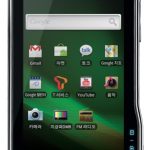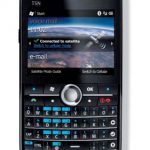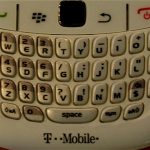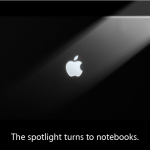Duarlander: Paying for Android beta testers

Android fragmentation is a serious problem. Not only are there already three live versions of the mobile operating system, and more than 25 phones from over 10 different manufacturers, but a handful of different app stores and app distribution channels. The future only holds more of everything.
Now, a new community called Duarlander is forming, where beta testing is crowdsourced to all Android users registered with the service. Developers submit their Android Package files (.apk), and then pay a fee between $100-$250 which is distributed among the beta testers.
Apple's 'latest creation' to debut January 27

Invitations for an Apple event on January 27 have started to roll out to the media, sporting the enticing headline "Come see our latest creation."
Like Apple's other events at the Yerba Buena Center for the Arts in San Francisco, the invitation is light on details, but presents a vague clue that hints at what the event will cover. This particular invitation is a spraypaint-splotched card with the Apple logo in the center.
Motorola launches another multitouch Android 2.0 device, this time in Korea

Motorola CEO Sanjay Jha said "the majority" of the company's phones would incorporate a multi-touch interface moving forward, and as long as they're being released everywhere except the US, that statement will surely prove true. Today, Motorola announced its second Android-powered handset which supports the feature, called MotoROI.
Because the device is destined for South Korea, where market demands are different --and those pesky intellectual property agreements do not apply-- MotoROI includes: Terrestrial DMB, the Korean peninsula's popular freeview mobile DTV standard, 720p HD video capture with HDMI output, and an 8 megapixel camera with panorama, face detection, OCR, multi-shot (6 shots in a row), face filter, red eye reduction, and automatic image stabilization. Like the Verizon Droid's European counterpart, the Milestone, MotoROI features out-of-the-box multi-touch support, including the venerated pinch zoom action.
Hundreds of wireless microphones in 700 MHz band to go obsolete

Literally hundreds of different wireless public address systems that utilize the 700 MHz UHF band for microphones, intercoms, and in-ear monitors must now be replaced or reconfigured, and it's because of the great DTV shift that took place last year.
In 2008, the FCC auctioned off the 700 MHz frequency band that formerly belonged to UHF channels 52-69, and a large chunk of the band went to AT&T, Verizon, Cox, and King Street Wireless, a holding company associated with US Cellular. Now that the DTV transition is complete and next-gen wireless services are being built around the spectrum that was freed, the FCC has prohibited the sale and distribution of 700 MHz consumer devices.
Microsoft: We weren't talking about Windows Mobile 7 at CES

A Microsoft spokesperson contacted Betanews today requesting we clarify a story we brought you during the tail end of CES 2010. Specifically, we presented an interview with Windows Phone Senior Marketing Manager Greg Sullivan entitled, "Finally, what to expect from Windows Mobile 7 and Windows Phone."
At the time, we were under the impression that the interview was providing us with a taste of what we could expect from Mobile World Congress in February, and I suggested that Windows Mobile 7 was "only two months away," even though "Microsoft really [wasn't] talking about Windows Mobile 7 specifically."
Verizon Wireless demands data plans for non-smartphones
Amazon opens DIY Kindle publishing to world, but does not improve language support

Amazon Kindle may be the go-to brand when someone considers buying a new e-reader in the U.S., but the popular device line is still only just getting its feet wet in the international market.
Last October, Amazon released a version of the Kindle 2 that is compatible with the wireless networks in more than 100 countries, but the content available in the Kindle Store is still mostly aimed at English speakers.
Hybrid cellular companies could enhance AT&T with satellite service this year

In July, I wrote an article called "Hybrid satellite cell phones aren't far off," in which I talked about Terrestar Networks and SkyTerra Communications, two companies that have reached the point of satellite launch in their hybrid MSS/cellular networks.
It looks like those launches could be even closer to becoming a reality.
Texas Instruments networks its calculators

Anyone who has taken a calculus class in the last 20 years is sure to also have a great deal of experience plugging figures into a TI-8X graphic calculator, and I'm sure I'm not alone in feeling a certain pang of geeky nostalgia for the TI-85, a standard-issue tool for high school kids in the 1990's.
Technology has come a long way since the 6 MHz Zilog Z80 processor, but Texas Instruments isn't retiring the popular calculators just yet. Instead, it has moved a significant number of those old devices into the wireless age.
Kodak sues Apple and RIM over iPhone and BlackBerry cameras

Today, Eastman Kodak filed a complaint with the US International Trade Commission and a suit in the Western District Court of New York that claims Apple's iPhone and Research in Motion's BlackBerry devices both violate Kodak's digital imaging patents.
Equipped with a fresh legal precedent from the suit it won against Samsung last month, Kodak spokesmen say the company isn't trying to disrupt sales of the iPhone or BlackBerry devices, but rather, it's seeking compensation for use of Kodak's patented technology.
The next entry in the 'Guitar Hero' genre promises to teach real guitar

Video games that are popular among kids sometimes get an unfortunate makeover into educational software, and while not all conversions result in terrible rip-offs, there have been a number of exceptionally bad action-to-educational conversions. Some examples that come to mind are Sega's zombie shooting game House of the Dead, which was mashed up into a typing tutor; and Nintendo's I am a Teacher: Super Mario Sweater, which turned a kid's Famicom into a textile design machine with the aid of the company's mustachioed mascot.
But certain types of games are instructional without being aggressively labeled as such, and have been teaching kids for the last few years. Music simulators such as Rock Band and Guitar Hero, for example, have helped many kids become proficient drummers before they're even enrolled in primary school.
Google upgrades Docs, cross-promotes Memeo Connect to pull in Office users

Often, when a big company releases a new piece of hardware or software, smaller companies will launch their own products that ride in the bigger product's proverbial draft. But this time, One big launch has rolled another smaller launch in with it.
Today, Google announced it will be expanding the storage capacity of Google Docs to 1GB, and allow single files up to 250 MB to be uploaded, which opens up the ability to upload other file types such as raw graphics files or zipped archives. Word documents are limited to 500 KB in size, and PowerPoint presentations are limited to 10MB, but the general limit is still many multiples higher than the maximum Gmail attachment size.
A pre-Mobile World Congress look at the best handset keyboards

I only briefly touched on this point in my first article about the Apple tablet, but I'm a firm supporter of device manufacturers that install QWERTY keyboards whenever they can. In fact, it is the single reason I have avoided the iPhone, and no amount of soft key practice has made me comfortable with it as an efficient method of text entry.
Even though the HTC HD2 is a spectacular piece of hardware, I am not likely to give it much consideration because it has no keyboard. In talking with Microsoft's Greg Sullivan of Windows Phone about the HD2, he told me that getting used to soft keys requires you to reach a point of abandonment, where you just accept mistakes and roll with them.
Nexus One development commences with Android 2.1 SDK update

In addition to launching the latest skirmish in the mobile platform/mobile carrier wars, Google and HTC's Nexus One smartphone also introduced the world to Android 2.1.
Before the Nexus One came out, the Motorola Droid launched in a similar fashion, where the device ran Android 2.0 exclusively before the SDK component was released to the public and other devices were upgraded.
This is my first story about Apple's tablet, and here's why

For months, I have watched in disbelief at the hysteria over Apple's rumored-to-be-upcoming tablet device without devoting a single article to it. It troubled me by how quickly unconfirmed reports could become concrete facts simply because they've been repeated enough. Even after all. My fellow. Betanews contributors...added their opinions unto the noise, I didn't want to pollute the air with my grumblings.
But just after Christmas, Technologizer's Harry McCracken wrote what became my favorite story about the Apple tablet, and it isn't even about the tablet itself. It's called "The Speculative Pre-History of the iPhone" and it shows how dozens of reporters drew dozens of different conclusions about the iPhone before it was released, yet they were all based on pretty much the same set of "facts."
Tim's Bio
Tim Conneally was born into dumpster tech. His father was an ARPANET research pioneer and equipped his kids with discarded tech gear, second-hand musical instruments, and government issue foreign language instruction tapes. After years of building Frankenstein computers from rubbish and playing raucous music in clubs across the country (and briefly on MTV) Tim grew into an adult with deep, twisted roots and an eye on the future. He most passionately covers mobile technology, user interfaces and applications, the science and policy of the wireless world, and watching different technologies shrink and converge.
© 1998-2025 BetaNews, Inc. All Rights Reserved. About Us - Privacy Policy - Cookie Policy - Sitemap.

